Workshop October 2017
GADIP (Gender and Development in Practice) arranged a workshop with guest associations working on women’s health, violence and integration. The aim was to jointly discuss activities and experiences of working together with migrant women.
The workshop was initiated within the framework of the project The Europe We Want. It is funded by Erasmus+ and focuses on female migration and adult education.
The overarching aim of this project is to support officers in migration authorities in order to create new ways of approaching female migrants.
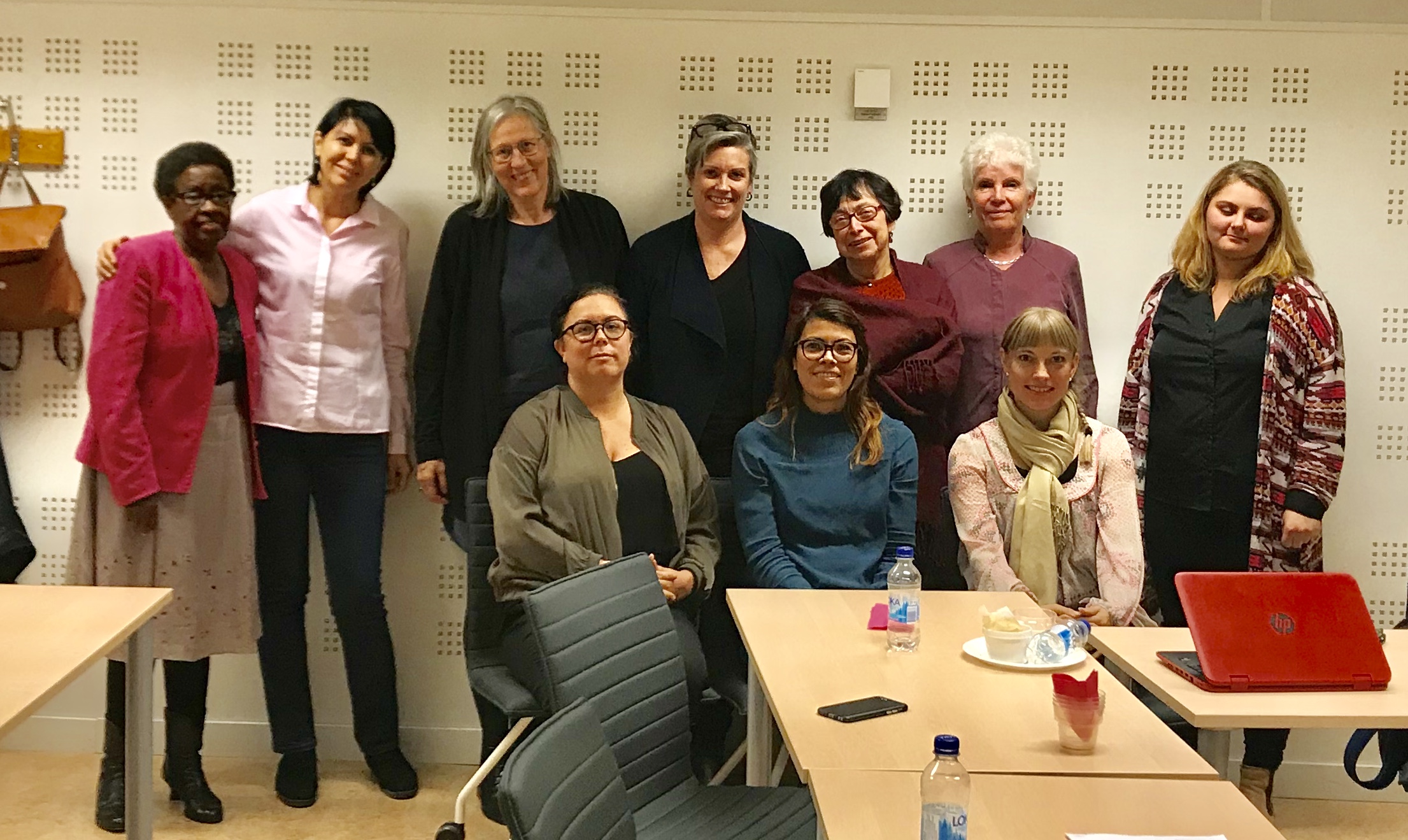
Complementary Education for Health Workers
Patricia Olaya
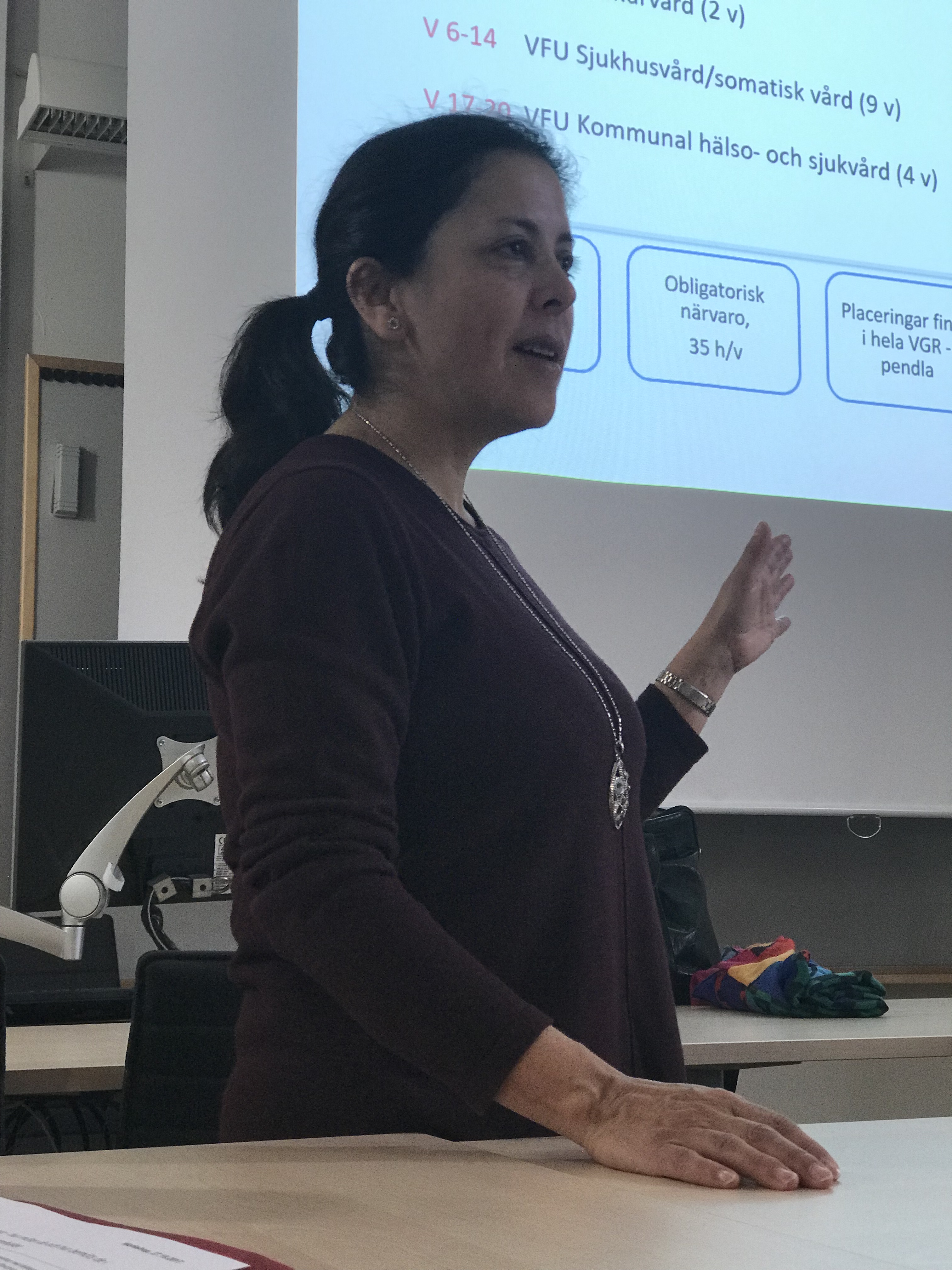
In order to strengthen employability of new arrivals who have acquired a healthcare education in their home country, the Swedish government has commissioned training programs to two hospitals in Stockholm and Gothenburg. Persons with a healthcare education from sending countries (non-EU countries) are offered complementary education and practices. Financing of the program is temporary and will last three years. Within this training program, participants also transfer knowledge to Swedish healthcare workers about typical problems and diagnoses among immigrants. This education is aiming to provide full speed learning of Swedish, since they have to reach a more complex language level as a requirement for obtaining professional accreditation.
Patricia’s role is to coordinate complementary education with Swedish language and cultural adaptation teachers in order to accelerate the learning process so the individuals can practice their profession. The complementary program duration is of two terms with three different placements and several examinations. The Unit for academic language (ASK institution) cooperates in this program.
Patricia discusses the difficulties that immigrants have to face when learning the language and finding employment. One of these difficulties is segregation, as it makes it hard for them to use the language in their everyday life and therefore forget much of it. If they do not manage to make themselves understood in the healthcare contact with the patient, they can be denied work. Another difficulty is the high segregation at the workplace, which limits a person from learning proper Swedish. Segregation is the result of prejudices of collaborators. This fact can be frustrating for immigrants that have a higher education level from their home countries but who need to practice as a nurse assistant. They feel that they are not taken seriously and they feel diminished by the Swedish society. Patricia’s ending question is whether the Swedish society is using the immigrant’s competence in a good way after the complementary education or is the complementary education just another way to test their knowledge.
Cultural Interpreters in Women’s Clinics
Elizabeth Franklin
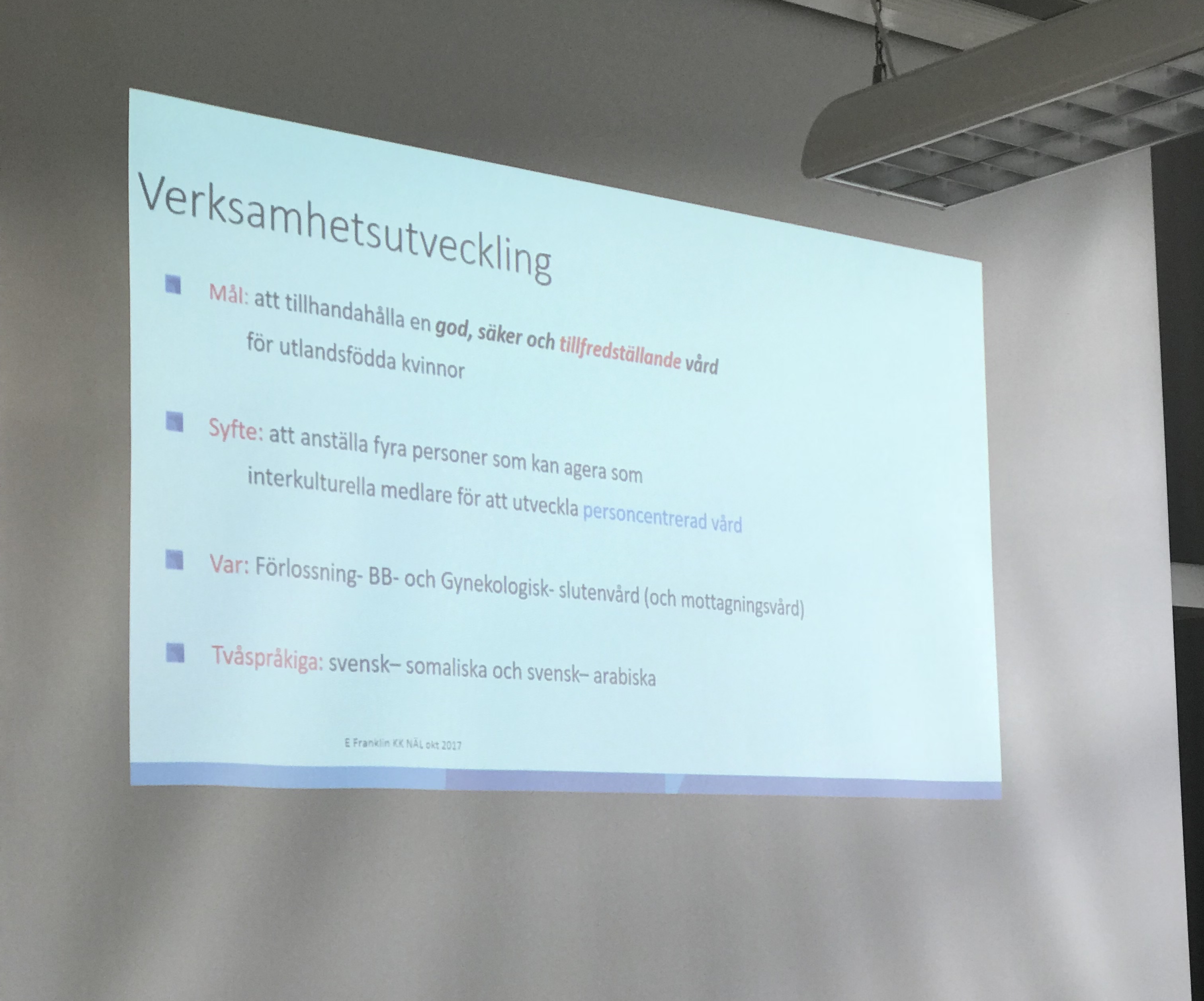
The hospital (NÄL) that is running this program has the goal to provide a good, safe and satisfactory healthcare for foreign-born/immigrant women. The purpose is to hire some women who can act as intercultural mediators in order to develop personalized healthcare. Cultural differences can limit personalised care. Immigrant/refugee women have experiences and life histories which can be valuable to know in connection to how they experience the healthcare and support provided. Two kinds of skills are used in the program: An intercultural interpreter that is professional and impartial but can be part of a two-party conversation and can have a personal approach to the patient. An intercultural mediator that acts both as interpreter and language support for those who have limited understanding of Swedish when in contact with the healthcare providers when they, for example, are to deliver a child. In order to increase the understanding between individuals, an important factor in cultural mediation is to think about how different concepts, metaphors, etc., can be used in the communication.
Equal Start in Life
Bodil Frey
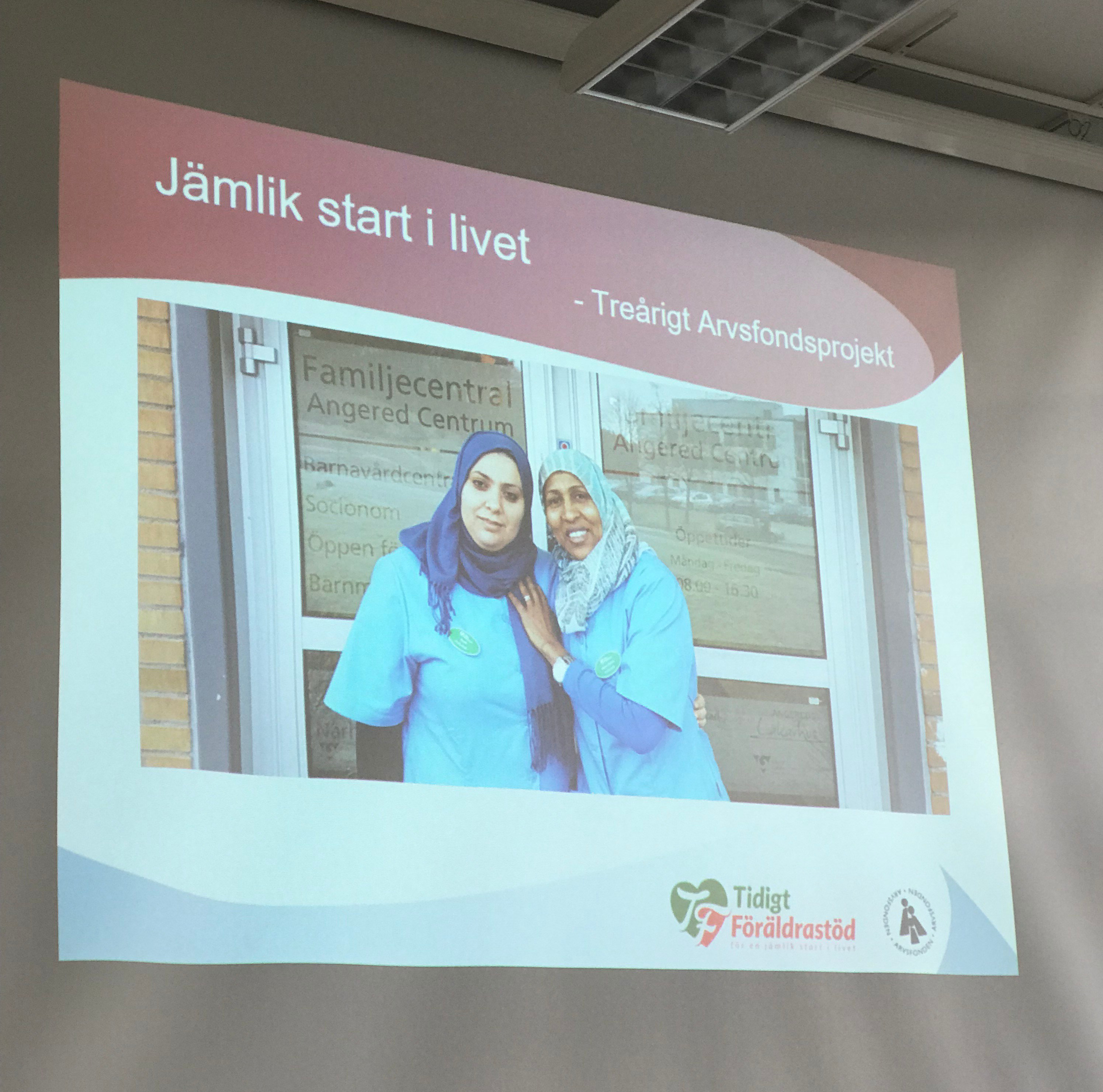
Another project taking place is within an association for homeless, pregnant and early motherhood support to new mothers. The association started in 2012 and is a voluntary organisation financed for a three year period by the Swedish “Inheritance Fund” (Allmänna arvsfonden). Their idea is to integrate delivery services with the help of doulas as cultural interpreters. The doulas assist with translation in connection with deliveries of a child and other kinds of support. A doula differs from a professional translator since she is a professional but provides personal and continuous support. Doulas learn about the problems, fears, diagnoses and insecurities a newcomer in Sweden has. They often see a pattern of issues that migrant mothers face, such as isolation, mistrust of the Swedish society, postnatal depression, lack of support in the house hold —especially for those women that are single mothers or widows—, or lack of support from the Swedish healthcare in those cases when the woman suffers injuries after the delivery.
The doulas work at a family center where immigrant mothers are invited to attend information meetings about different support services offered; they are encouraged to seek help in their contact with different actors in the healthcare system, and parenting support so those who do not speak the language can benefit of helping actions and integrate easily. In order to help immigrant mothers in their role as new mothers and help them learn what to do when having a child, doulas make home visits too.
Teenage Mothers Empowerment Organisation
Rosette E Kabandize
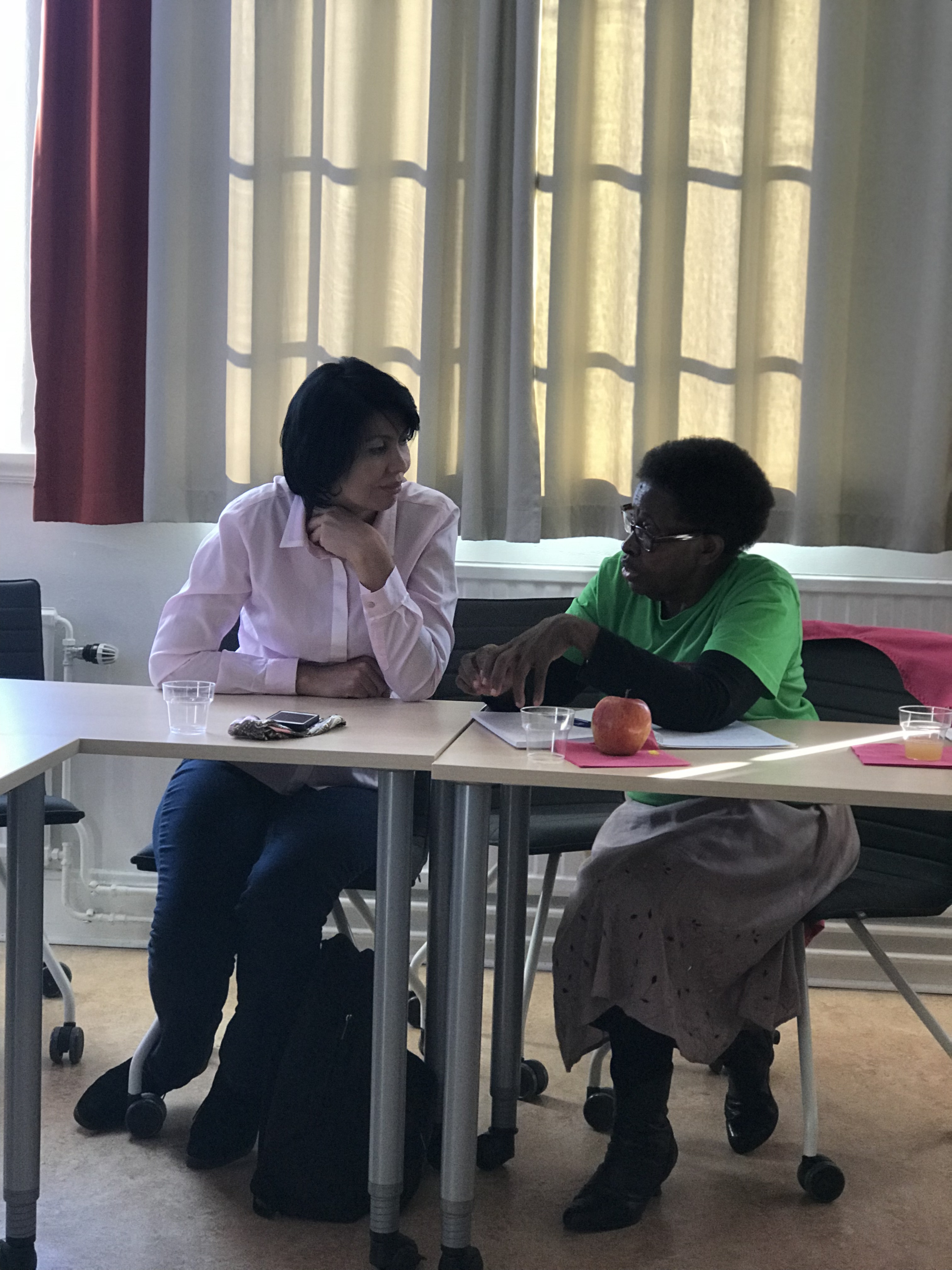
Rosette is a nurse and midwife with training in psychiatry. She migrated from Uganda in the 1990s and started the organisation in 2015 with the aim of helping young mothers reach a higher level of empowerment and independence. This is to be accomplished through counselling and help to the girls in order to widen their perspectives and seek social advice and someone to lean on. In Sweden, girls are facing different kinds of problems as isolation, they do not agree with their parents, their partners end the relationships, and many end up in need of psychiatric care. Girls from other countries who get pregnant might have been sexually abused or raped, and have a child as a result. Girls that have been exposed to this kind of traumatic experience are facing stigmatisation, guilt and isolation. They have little or no social support from authorities or family. The young mothers and their children are exposed to risks, in terms of physical, mental and social problems: they risk poverty, isolation, low self-esteem, have higher exposure to violence and other kinds of abuse.
Violence Prevention Work in Collaboration with Municipalities and Associations
Lina Lundberg
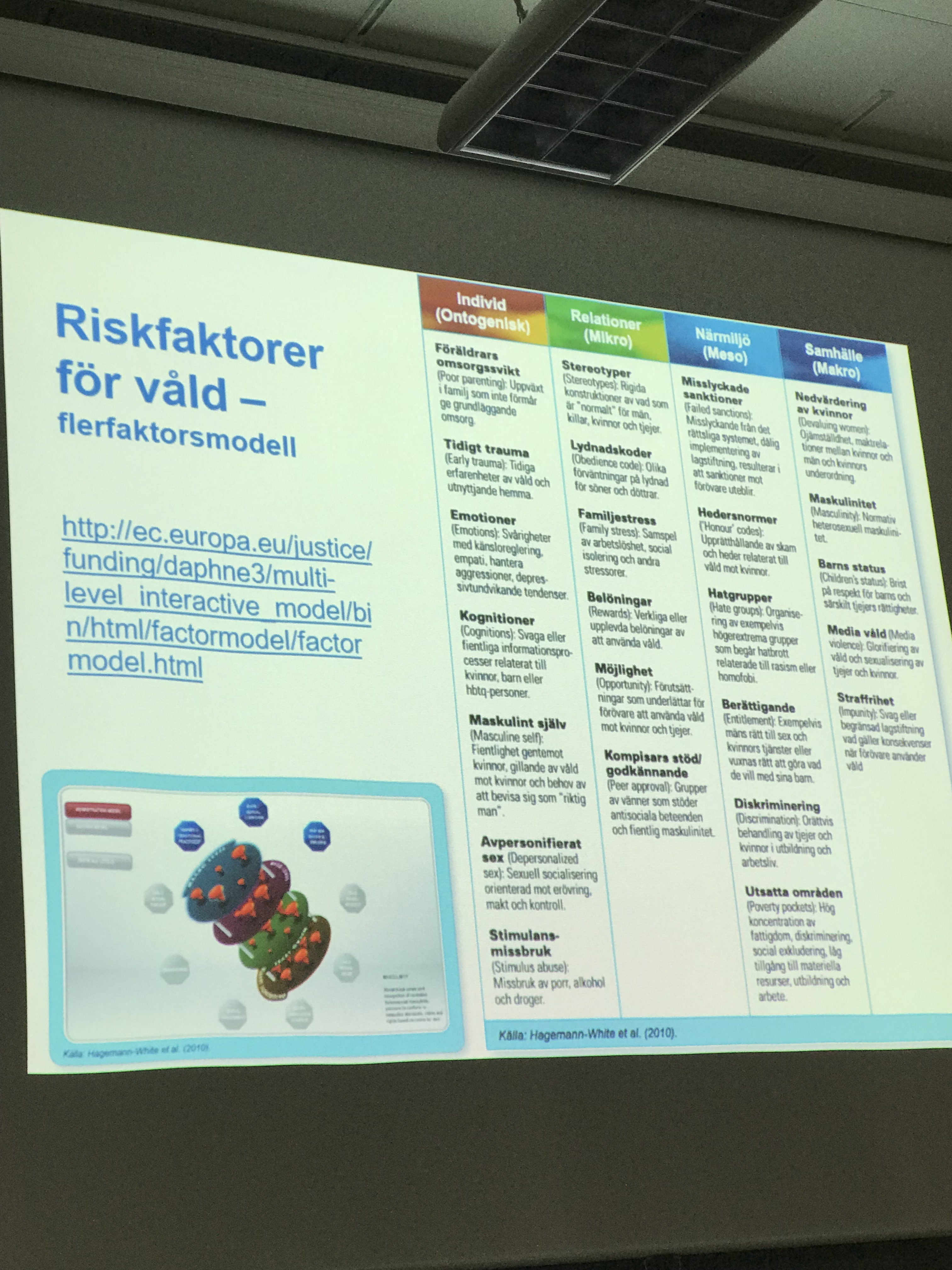
Globally, prevention of violence against women and girls is now regarded as a phenomenon which must be counteracted at all possible social levels. Laws have been introduced in many countries to make violence against women illegal, but this is not enough: implementation of these laws must be enforced. There is a need to change norms and habits through education including men, women, and authorities. In Gothenburg the local government has introduced an overarching program on security, including violence prevention. The aim is to establish cooperation between the NGOs that meet the victims and the municipal institutions. On the basis of accumulated knowledge on activities for violence prevention and rehabilitation of victims, the program aims at changing norms at community level, local environment level, relationship level, and individual level. The program leader shall coordinate cooperation between the local institutions and organisations that are working with persons that have experienced violence or are at greater risk to be exposed to violence.
Social Life Enhancement Association (SYGD) in Turkey
Nargiza Ozguzel
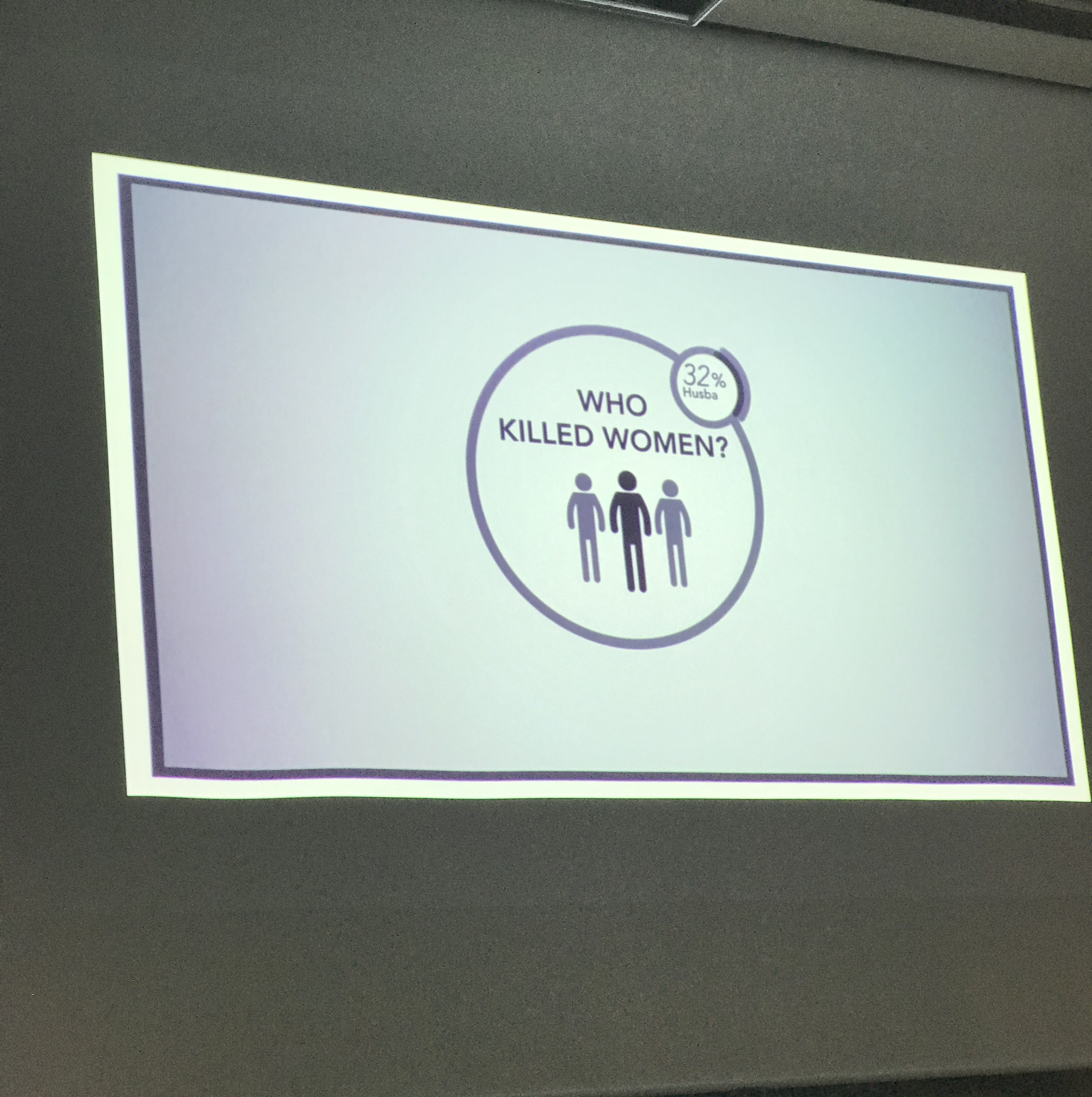
Concrete examples were presented from Turkish experiences where laws are introduced to protect women but barely implemented due to social norms and attitudes. Initiatives from voluntary organisations provide knowledge through workshops in order to educate men about this issue. Nargiza represents an organisation which is providing workshops for migrant women with focus on empowerment where women are learning not only about their legal rights, psychological abuse, coping strategies, but also about which kind of support they can get from the community and state. Authorities in many cases deny help to women victims due to reluctance to accept the vulnerability of women and girls. Male cultural attitudes of rape are accepted, teenage marriages as a way to solve economic issues in families are widely applied. The media in Turkey counteract opinions that violence against women and children is a huge problem within the society. Rather, victims are often blamed for the kind of violations that they experience. Nargiza emphasises that a way to succeed is through strengthening the voices of the civil society.
Training for Labor Market in Study Circles
Sara Claesson
ABF is Sweden’s largest adult education association: Arbetarnas Bildningsförbund (Workers’ Educational Association —www.abf.se
ABF is based on a pedagogical model of learning in study circles, where participants study together and discuss amongst them. Two examples were presented. The project presented by Sara concerns the development of various programs with the aim of helping immigrants to integrate into the Swedish society. They provide activities in language training, sewing activities, and study circles. They involve the community, support immigrants with job training, and have a language café. This job training requires cooperation with the Labor Office that organises internships and job training. Sara is also working with immigrants that are illiterate and helps them get information about the Swedish community.
Work Training for Immigrant Women with Little or No Work Experience
Nancy Contreras
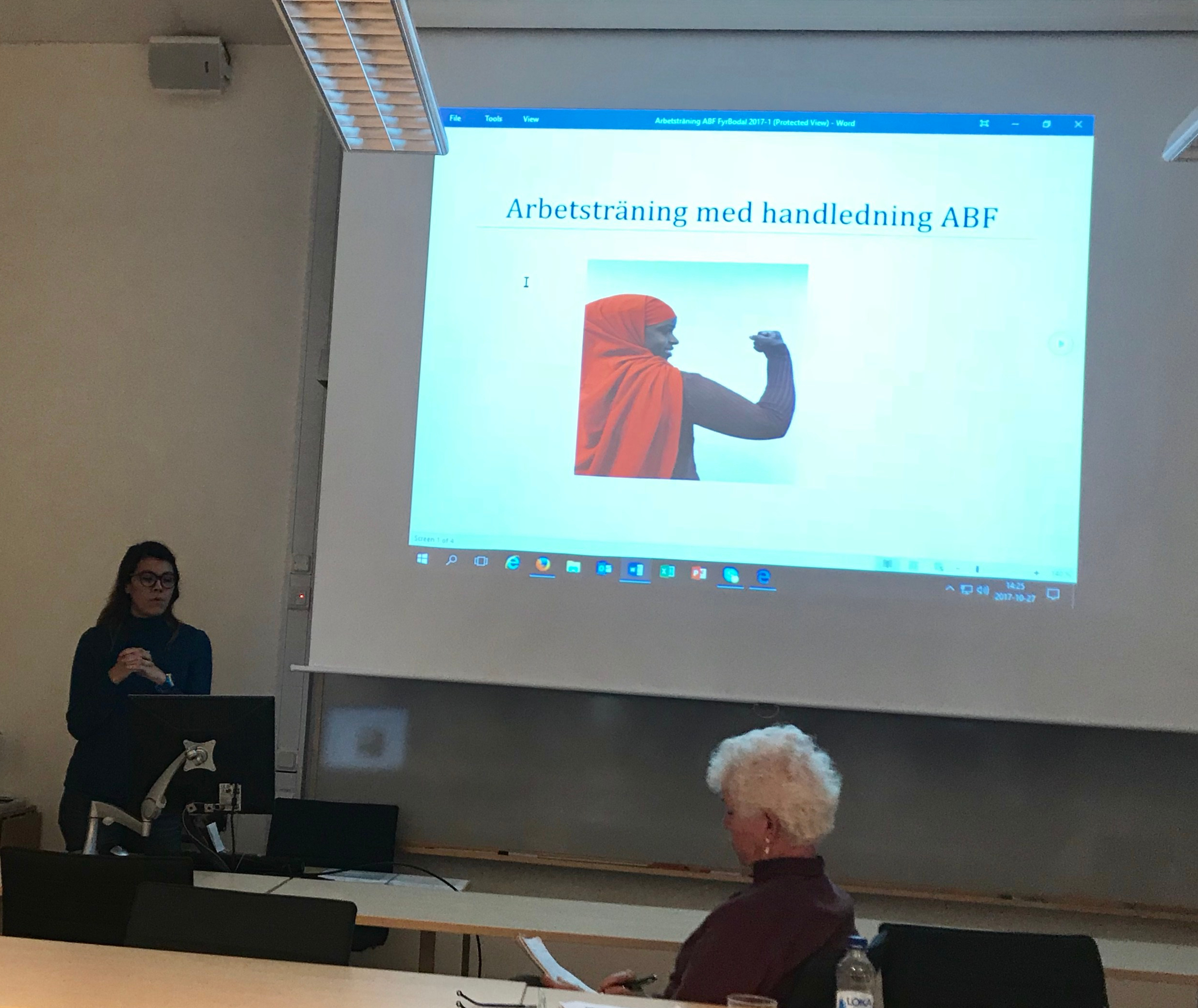
The example presented by Nancy refers to women engaged in sewing and learning language at the same time. The teacher (Nancy) speaks Swedish throughout the lessons and participants learn through those who might be faster at grasping the meaning of words and finding information. They help immigrants adjust to the Swedish way of life, and create new routines. In order to avoid cultural disputes on ways of life, the teacher tries to keep the focus on human rights.
By creating with their hands, participants relax, thus improving their ability to understand language codes while learning something practical. Sewing as an activity is a language channel and a way to learn, it is also a way to empowerment and better self-esteem which can also lead to economic independence. It also helps women focus on a task and forget their everyday problems for a while, which can be a coping mechanism.
Summary and Reflections
Ulla Björnberg
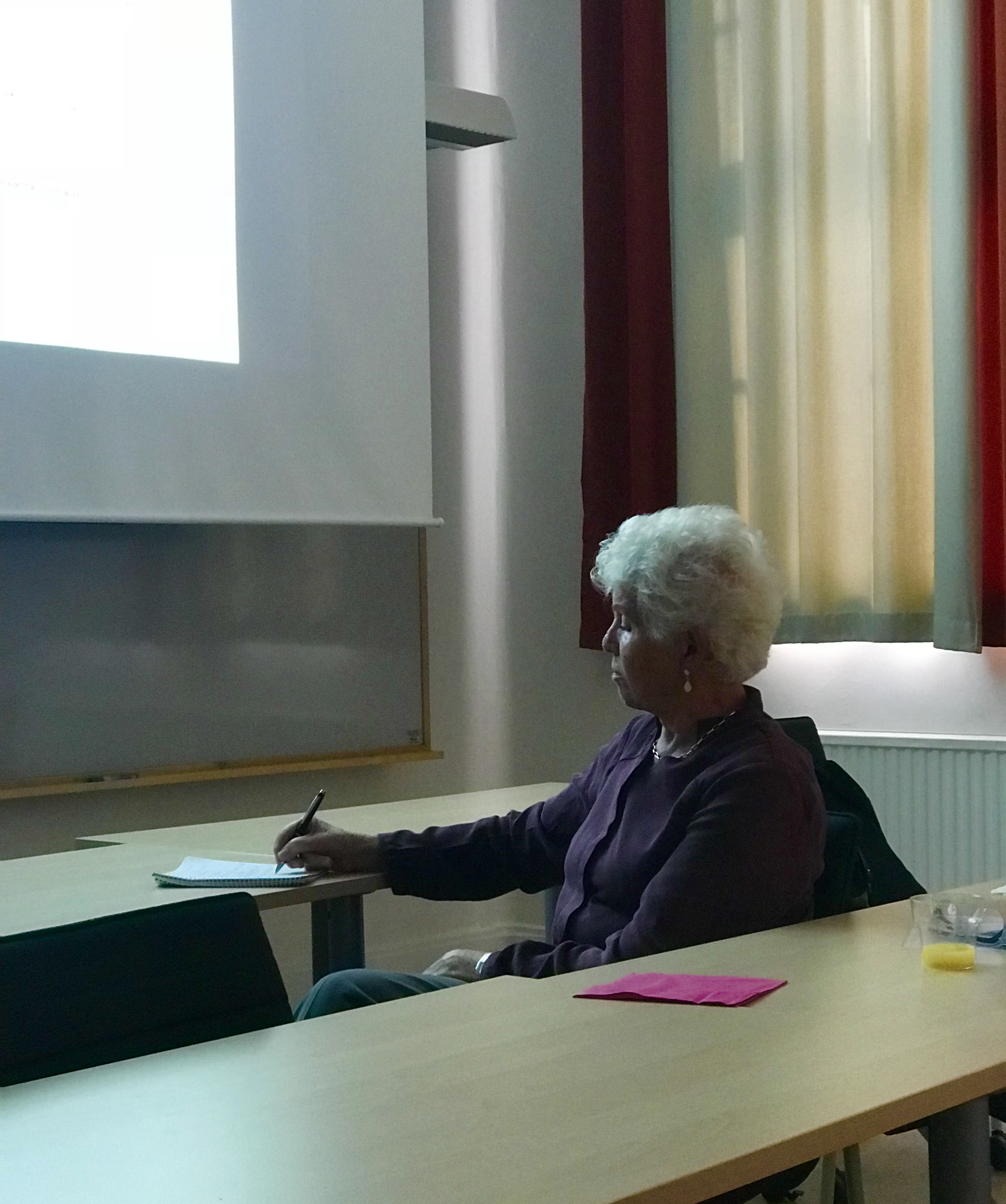
In the workshop presenters were asked to draw on positive experiences as well as negative factors behind the development of their activities for migrant women in their organisations.
Experiences from local voluntary organisations show that interactions between the civil society and local authorities are important sources that could enlarge a knowledge base of relevance for adaptation strategies, since these local civic organisation are the ones who meet people in their everyday lives. This is about intercultural communication, about needs and conditions for support. Civil society has the advantage of being able to develop informal methods; they can gather knowledge regarding individual needs and circumstances and mediate between authorities and the individual women. The disadvantage for the civil society (voluntary workers) is, however, the unstable working conditions and the temporal financing of their activities.
The participants in the seminar recognise that institutions should be more prepared and trained on intercultural problems that can occur in contact with foreign-born individuals. Fortunately, Swedish politicians are investing a lot on developing resources for women that have been assaulted, for young parents, and for several family centres. A way forward could be a project named “Building Bridges” that is inspired by the project to end genital mutilation. The project’s purpose and goal would be to facilitate contact and cooperation between people of different ethnic backgrounds.
Experiences shared in the workshop show that language learning should involve both practical and professional issues, as well as activities to strengthen self-esteem and social mutuality. The necessity of integrating learning skills for a particular job should also take into consideration the need for self-esteem and self-confidence in such learning process. Language is about learning cultural codes and meanings, not only learning vocabulary and building sentences. Another pedagogical tool is to mix new arrivals with older arrivals who can help interpret meanings by reference to culture of origins. Intercultural interpretation in various forms is being developed in healthcare, in women’s clinics and hospitals in order to serve both professional staff and clients.
On a social level at large, migrant segregation in housing and the workplace has a negative impact on learning. All the participants agree that gender segregation in workplaces is a big problem: foreign-born women are placed where they experience segregation and exclusion, intercultural difficulties and misunderstandings, and lack of support from the employer to integrate and do a good job. Workplaces that are women-dominated are not prioritised for developmental initiatives. In themthe salaries are low and the working environment is bad and stressful. For those foreign-born who have a higher level of education, elements of practice are few which is an obstacle when trying to learn the language. New initiatives in healthcare need to develop cooperation between complementary education, hospital and practice.
Regarding migrant single mothers, there is an obvious lack of support and helping actions, especially for young mothers. This issue is more evident for those who live in vulnerable and segregated areas of the city and have limited language skills. It was commented by participants that Swedish institutions can be quite compact and bureaucratic, which complicates cooperation between states and politics, municipalities and regions, and organisations and non-profit associations.
A conclusion from the workshop emphasised the necessity to give space for social activities that draw on human rights and positive thinking. Organisations in European countries take initiatives to develop capabilities of the persons who come to settle. Identifying shared values would mean highlighting commonalities and investing in human capital and skills potential.
Another problem to take into consideration, but which was not dealt with during the workshop, is the motivation of the variety of the category ‘immigrants’. In response to the political concerns about the number of refugees and asylum seekers, various measures are applied to restrict the numbers. Consequently, we now can discern six categories of refugees to be hosted in the receiving countries. (1) Refugees who are waiting for decisions on their asylum application —first and second application. (2) Refugees who receive temporary permit to stay. (3) Refugees waiting for expulsion. (4) Refugees who cannot be expelled since the sending countries refuse to take them back. (5) Refugees who remain illegitimately. (6) And finally, Refugees who get permanent resident permit, but are denied family reunification. It is a mixed category of people that are living in the host countries and that should be included in measures undertaken by local authorities and civil society. The six categories have one crucial condition to face: uncertainty about their future and their rights during the waiting period, which can be long. It is a situation of limbo, where being in between social contexts means they have limited control their individual living conditions. We know from research that the uncertainty and stress related to waiting for a “normal” life can be harmful for health, both physical and psychological.
